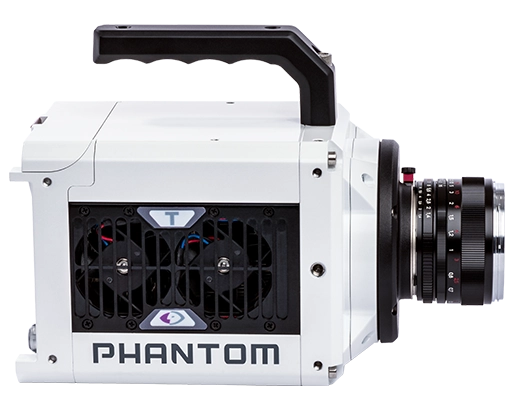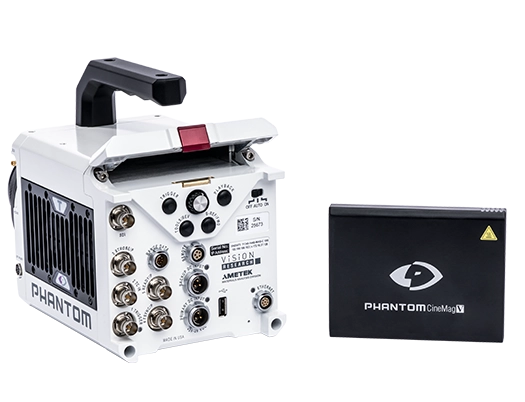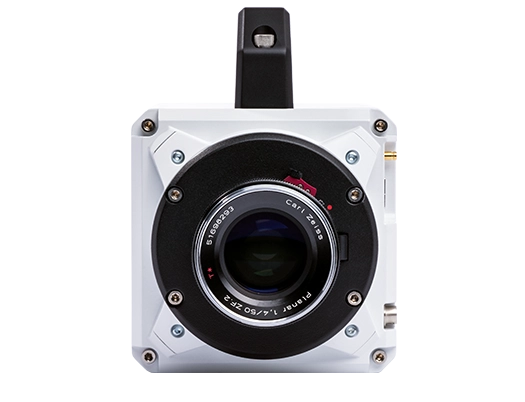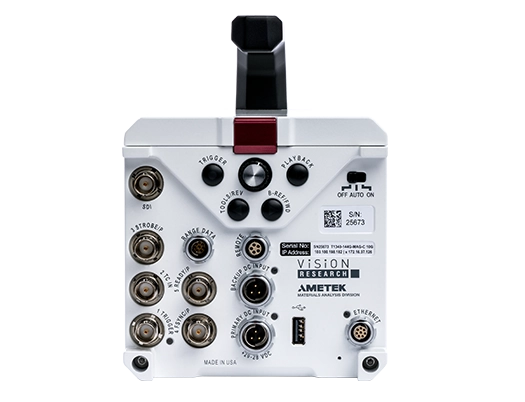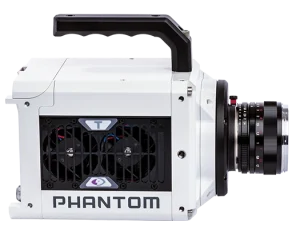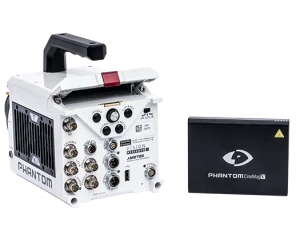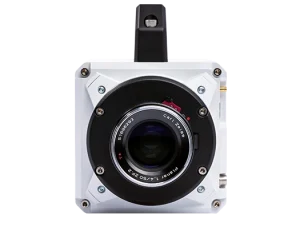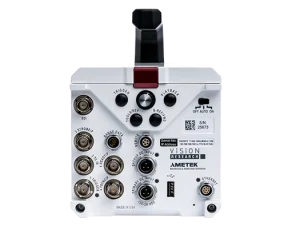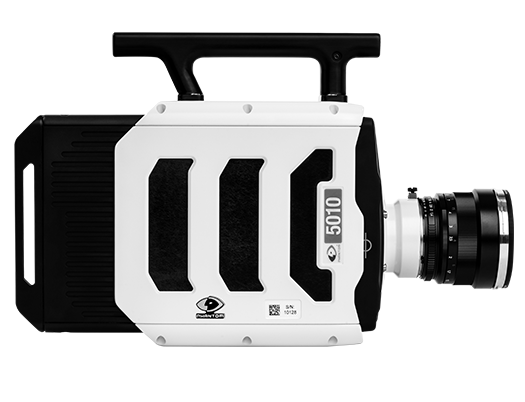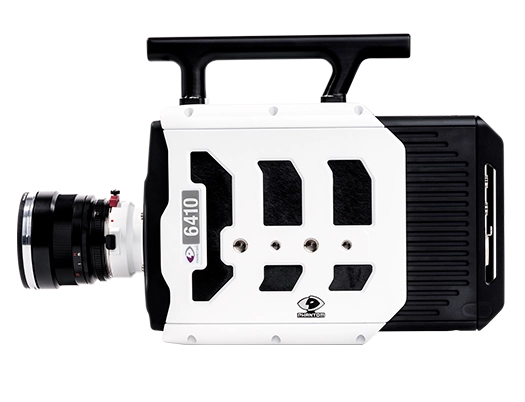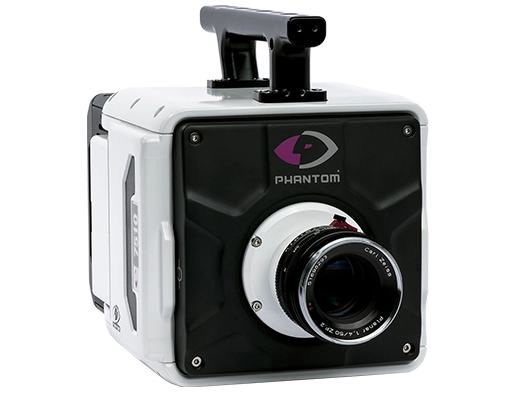Overview
When operating at its maximum resolution of 1280 x 800 pixels, the Phantom T3610 is capable of capturing over 38,000 frames per second, resulting in a throughput of 38 Gpx/second. This impressive level of performance is maintained throughout the camera’s full range, allowing for a top frame rate of 875,000 fps at both 1280 x 32 (in standard mode) and 640 x 64 (in binned mode). Binned mode involves combining the sensor pixels 2×2, which increases the vertical resolution of the camera’s top frame rates. Both mono and color T3610 cameras include binned mode, although the output switches to mono when used with a color camera.
The T3610’s frame rates are highly desirable for a variety of applications, including combustion, impact testing, spray dynamics, and shock wave analysis. Additionally, any fast-paced application that requires fast exposures to reduce motion blur and image sensors with high light sensitivity would be an ideal match. The T3610’s custom BSI sensor delivers on all these fronts, offering a native ISO of 40,000D mono and the ability to shoot in environments with limited supplemental light.
The T3610 includes premium features to enable a variety of applications including:
- EDR (Extreme Dynamic Range) provides flash mitigation for ballistic studies by dynamically adjusting exposure in saturated areas of the image.
- Programmable I/O to interface with DAQ systems and a variety of measurement sensors, which can be recorded and viewed as metadata in Cine files.
- Remote, standalone operation is achieved by using the on-camera controls, video monitor and CineMag.
BSI Technology
Similar to the TMX high-speed cameras, the Phantom T3610 also utilizes BSI (Back-Side Illumination) technology to enhance the sensitivity and image quality of its sensor. In traditional sensors, electronic components such as transistors are located on the back side of the sensor, which can interfere with the light reaching the pixels on the front side. In contrast, the BSI sensor of the T3610 has its light-sensitive pixels on the back side, while the electronic components are on the front side. This results in improved low-light performance and a higher signal-to-noise ratio, as more light is able to reach the pixels. Additionally, the use of BSI technology allows for a more compact camera design.
As with all high-speed cameras, the need for increased light is a constant challenge when increasing frame rates. The T3610’s BSI sensor addresses this issue by relocating the metal components that can interfere with incident light to the back of the sensor. By doing so, even more light is able to reach each pixel, which in turn improves the sensor’s light sensitivity and QE. To learn more about the benefits of BSI sensor technology in high-speed imaging, check out our whitepaper on the topic.
Highlights
- 38,040 fps at full 1280 x 800 resolution
- 558.330 fps at reduced resolutions.
- Sensitivity: Quantum Efficiency*
- Mono: 80.3%; Binned 74.1%
- Color: 76%
- 18.5 micron pixel
- 12-bit depth
- CineMag V compatibility
- Full Phantom Features and connectivity
- EDR (Extreme Dynamic Range) provides flash mitigation for ballistic studies by dynamically adjusting exposure in saturated areas of the image.
- Programmable I/O to interface with DAQ systems and a variety of measurement sensors, which can be recorded and viewed as metadata in Cine files.
- Remote, standalone operation is achieved by using the on-camera controls, video monitor and CineMag.
- 10Gb Ethernet Option
<sub>*QExFF at 532nm</sub>
FPS and Resolution in Standard Mode
| Resolution | 1280 x 800 | 1280 x 640 | 1280 x 320 | 1280 x 192 | 1280 x 128 | 1280 x 32 | 1280 x 32* |
|---|---|---|---|---|---|---|---|
| FPS | 38.040 | 46.250 | 94.590 | 156.710 | 233.330 | 772.000 | 875.000* |
| *FAST Option |
FPS and Resolution in Binned Mode
| Resolution | 640 x 384 | 640 x 320 | 640 x 256 | 640 x 192 | 640 x 128 | 640 x 64 | 640 x 64* |
|---|---|---|---|---|---|---|---|
| FPS | 156.710 | 187.500 | 233.330 | 308.820 | 456.520 | 772.000 | 875.000* |
| *FAST Option |
